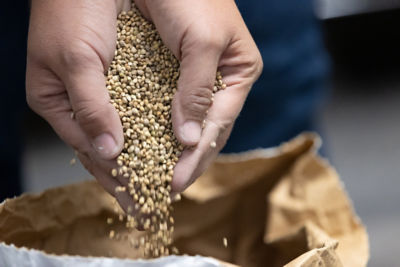CAUSAL AGENTS & DISTRIBUTION
Casual Agent – Abbreviation – Distribution
Cucurbit leaf crumple virus – CuLCrV – Mexico, USA (Arizona,California, Florida, Texas)
Loofa yellow mosaic virus – LYMV – Vietnam
Melon chlorotic leaf curl virus – MCLCuV – Guatemala
Pumpkin yellow vein mosaic virus – PYVMV – India
Squash leaf curl virus – SLCV – Central America, Egypt, Mexico, Middle East, USA (Arizona, California, Florida, Texas)
Squash mild leaf curl virus – SMLCV – Central America, Egypt, Mexico, Middle East, USA (Arizona, California, Florida, Texas)
Squash leaf curl China virus – SLCCNV – China, Philippines, Vietnam
Squash leaf curl Yunnan virus – SLCYNV – Southern China
Tomato leaf curl virus – ToLCV – India, Thailand
Watermelon chlorotic stunt virus – WmCSV – Middle East, Sudan
Watermelon curly mottle virus – WCMV – India
Vector
Silverleaf whitefly (Bemisia tabaci biotypes A, B, Q)
Symptoms
Geminiviruses infect cucurbits with varying degrees of severity. Cucumber appears to be least affected by geminiviruses. Symptoms of geminivirus infection may include upward curling of leaf margins, foliar stunting, chlorosis, interveinal mottling, vein clearing and thick, distorted veins. Flowers of infected plants are small and fail to develop normally. Early-season infection results in lack of fruit set, whereas fruit set prior to infection may be reduced in size, and exhibit chlorotic blotches and deformation.
 Cucurbit leaf crumple virus symptoms on watermelon. (Courtesy of Bob Gilbertson)
Cucurbit leaf crumple virus symptoms on watermelon. (Courtesy of Bob Gilbertson)
Conditions for Development
Geminiviruses are vectored by the silverleaf whitefly, Bemisia tabaci (biotypes A, B, Q). The adult whitefly acquires the virus from infected plants and can transmit it to healthy plants within a few hours. Symptoms can develop within five days of virus transmission. Symptoms on cucurbits are most severe when whitefly populations are high and the crop is infected early in the season.
Control
Host-free periods have been shown to be an effective measure for controlling the whitefly vector, whereas insecticide spray programs have been largely ineffective. Cultural control methods include weed control, incorporation of infected crop debris immediately after harvest and avoidance of planting new fields near infected cucurbit fields. Plant resistance is limited in commercial cultivars.




